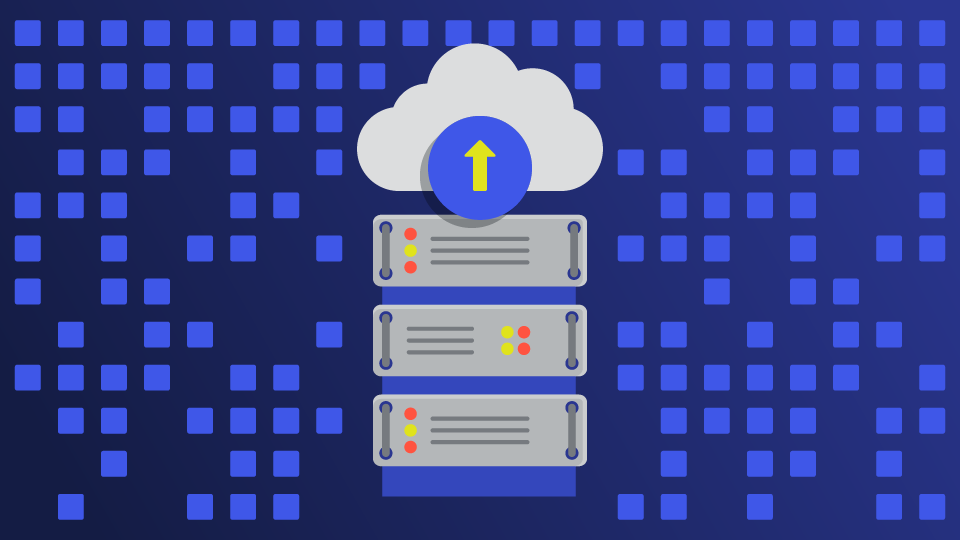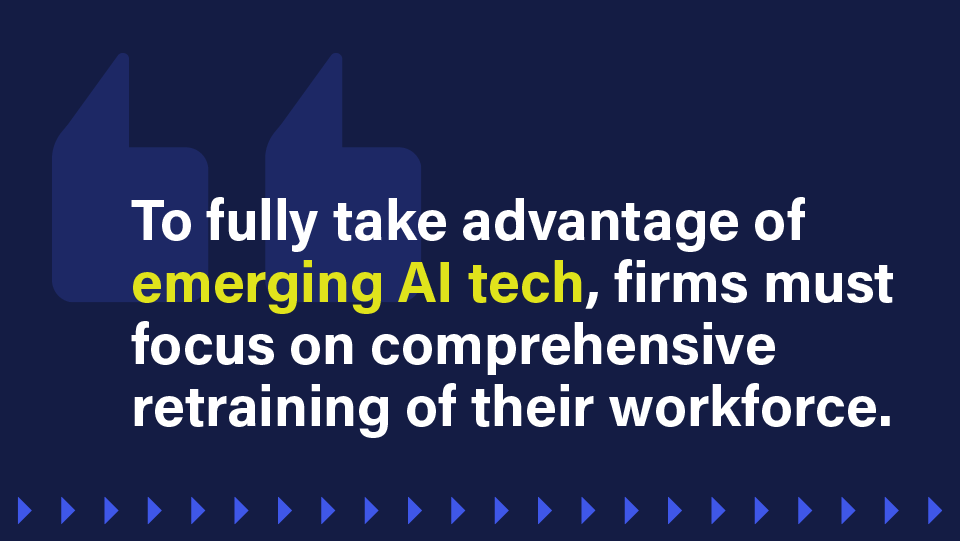Driven by the rapid advancement of artificial intelligence (AI), the tax and accounting landscape is on the cusp of one of our most significant transformations in years.
By now, firms should be adapting to existing AI technologies. But they should also anticipate future innovations revolutionizing tax return prep even further. In this blog, I’ll explore the path AI tech has taken in tax practices and what we can expect in 2024. I’ll also cover key considerations for retraining a firm’s workforce to effectively harness these advancements.
The evolutionary path of AI in tax practices

The integration of AI in tax and accounting started with digitization. Since then, it’s progressed to sophisticated software capable of handling complex tasks. As AI technology evolves, it’s reshaping traditional tax preparation practices by automating repetitive tasks, enhancing data analysis and providing predictive insights.
And now, the enhanced data accessibility and collaboration made possible by cloud-based technologies have set the stage for a more advanced AI integration. So, what can we look forward to in the coming year? Here are some predictions.
Anticipated AI technologies in 2024

As you emerge from busy season in the spring of 2024, several AI technologies are expected to have a significant impact on tax return preparation as we move through the year:
- Advanced predictive analytics. AI systems will offer more refined predictive models that use historical data to forecast future tax liabilities. They’ll also provide advice on optimal tax planning strategies. I’d consider this a significant advancement from a tax planning perspective.
- Enhanced natural language processing (NLP). Improved NLP will enable AI systems to understand and process human language more effectively. This will allow for more intuitive interaction with tax software and easier extraction of relevant information from unstructured data sources. To maximize its effectiveness, it will be important for you and your team to become familiar with how to effectively leverage NLP.
- AI-assisted compliance and error detection. Keeping up with regulatory changes continues to be one of the biggest challenges for small to medium-sized firms. More sophisticated AI algorithms will be able to ensure compliance by keeping up to date with the latest tax laws and regulations. It will also identify potential errors or anomalies in tax returns.
- Automated tax code interpretation. AI tools will be able to interpret and apply complex tax codes and regulations. This will reduce the need for manual interpretation and minimize the risk of errors.
Crucial skills and retraining for an AI-enhanced future
Because AI technology is one of the most important collaborative tools we’ve seen in decades, your team needs to embrace it now. To fully take advantage of emerging AI tech, firms must focus on comprehensive retraining of their workforce, which should include the following areas:
Core AI and machine learning understanding
- Foundation training. Introduce essential AI and machine learning concepts. Focus on their latest developments and the potential impact on tax practices.
- Application-specific training. Highlight the ways emerging AI technology can be applied specifically to tax return preparation.
Data literacy and management skills
- Advanced data analysis. Equip your professionals with the skills to analyze and interpret complex datasets generated by AI systems.
- Data security training. Emphasize the importance of data privacy and security in an AI-driven environment.
Proficiency in new AI tools and software
- Hands-on experience. Provide practical training on upcoming AI-powered tax software and tools.
- Continuous tech education. Foster an environment of ongoing learning to keep pace with the speed of technological advancements.
Adaptation to new professional roles
- Shifting focus. Guide staff in transitioning from traditional roles to those emphasizing analytical, strategic and advisory functions.
- Enhanced client interaction skills. Retrain your team to make use of AI insights in client consultations and when providing customized tax planning advice.
An important note: I recommend that you appoint someone in your practice to own the role of AI retraining coordinator. That’s especially crucial for the core AI/machine learning and new AI tools and software areas of your firm’s retraining program.
Implementing a forward-looking retraining program
So, now that you know what your team needs to learn, how do you accomplish it all? To implement this program effectively will require a strategic approach. This should include:
- Diverse learning. Make use of a combination of online learning, workshops, and practical training sessions. Check out popular online learning platforms like LinkedIn Learning, Microsoft and Coursera, which offer a number of AI training resources geared toward every level of knowledge. And don’t wait too long to get started on this; it’s crucial to have an exploratory and training plan for 2024.
- Collaboration with AI experts. Wherever you find them, look to AI technology experts for specialized training and insights. Where would that be? For a start, conferences, your local community, even by listening to some of the many AI podcasts now available. Also, try to engage your accounting peers in regular discussions to understand what more progressive firms are doing.
- Regular updates and courses. If you think AI has advanced rapidly so far, I feel confident in saying, “You ain’t seen nothing yet,” to quote Bachman-Turner Overdrive. That’s why it’s vital to ensure that you keep up the retraining with regular updates and refresher courses on AI advancements and changing tax regulations.
Incorporate AI technologies into your practice
I understand that some of you may think I’m harping unnecessarily on the integration of advanced AI technology in tax practices. But it’s not just an impending change I’m talking about; it’s a future that’s already unfolding.
As we move into 2024, the need for firms to adapt and retrain their workforce is becoming increasingly critical. This retraining goes beyond mere technical skills; it involves cultivating a culture of adaptability, strategic thinking and continuous learning.
By doing so, firms will not only keep pace with AI innovations, but they’ll also significantly enhance the efficiency and effectiveness of their tax practices—ultimately redefining their role in the dynamic world of tax and accounting. And if you’re interested in learning more about an AI tool purpose-built for accounting, check out our recent blog about Spark.


